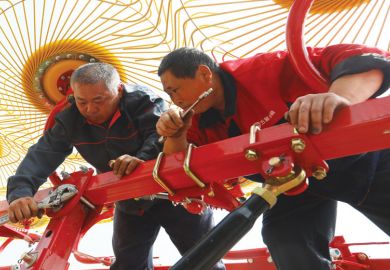The studies in Science Technology and Society are from an emergent field of intellectual inquiry. They embrace many disciplines, such as history of science and technology, epistemology and philosophy of science and, most important, science policy making, that are invariably associated with politics or rather the changes in political climates with in different countries. Associated with all these are current concerns about technology transfer, late development of industrie and brain drains.
This journal is an Indo-French collaboration devoted to developing countries. In India, whenever we talk about international collaboration it always means inviting one or two delegates from abroad to justify a peg or more from government fund s. Not so with this journal. It is difficult to do justice, in such a limited span, to its breadth and scope. However, I believe the theme sections themselves reveal its intentions: "Changing t rends in science policy", "International mobility of brains in science and technology", "Comparative perspectives on technological l earning", "Social history of science" and so on.
Fortunately, the journal does not advocate either of the two extreme views: modern science as either intrinsically hegemonic or as violent knowledge. While sociological deconstruction of science is now an accepted fact, in the wake of several environmental and developmental crises, there is no sense in dubbing modern science as "western" and attempting to disown it.
The journal does not attempt to take all developing countries and put them in a single boat. The editors are well aware of the shift from the idea of science as detached from society to the idea of a socioeconomically relevant science. Economic reforms and globalisation from the 1980s onwards have seen transformation in the science - policy agendas of many countries in the developing world. These have caused the se countries to reorganise their research and development agencies, including the university sector. However, there is no single model that fits all developing countries. The journal articles suggest that it is better to form development theories based on facts rather than on the traditions of particular disciplines, and reference s are not made only t o the course taken by industrialised countries.
Another important aspect highlighted by the journal is that sociology of science can show how science and technology studies of knowledge production have assumed a new dimension. The different actors that take part in the production of such knowledge; the complex translations, shifts of meaning, interpretation and responsibilities, all play significant roles.
So far as India is concerned, these studies are still bound to Vedic India - or rather "Hindu" achievements of the past - a lost glory that modern politicians are trying revitalise. A bibliometric survey could easily confirm this statement. Thus, the only journal devoted to history of science in India, Indian Journal of History of Science , that could have taken up science and technology studies is immersed in Hindu science. This fact, at least, is cause to welcome the arrival of Science, Technology and Society .
Amitabha Ghosh is an Indian affiliated scholar, Centre for Studies in Social Sciences, Calcutta.
Science, Technology and Society: (published two times a year)
Editor - V.V. Krishna and Roland Waast
ISBN - ISSN 0971 7218
Publisher - Sage
Price - £60.00 (institutional rate)
Register to continue
Why register?
- Registration is free and only takes a moment
- Once registered, you can read 3 articles a month
- Sign up for our newsletter
Subscribe
Or subscribe for unlimited access to:
- Unlimited access to news, views, insights & reviews
- Digital editions
- Digital access to THE’s university and college rankings analysis
Already registered or a current subscriber?



